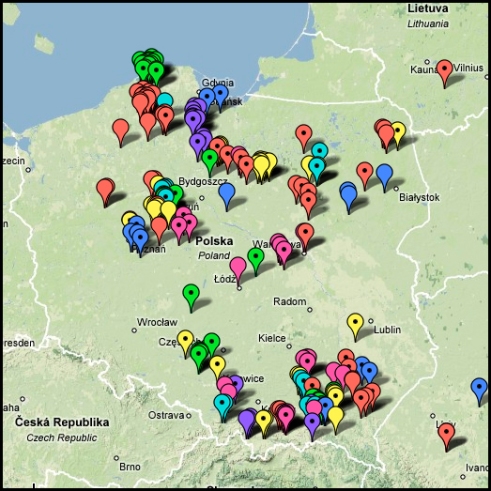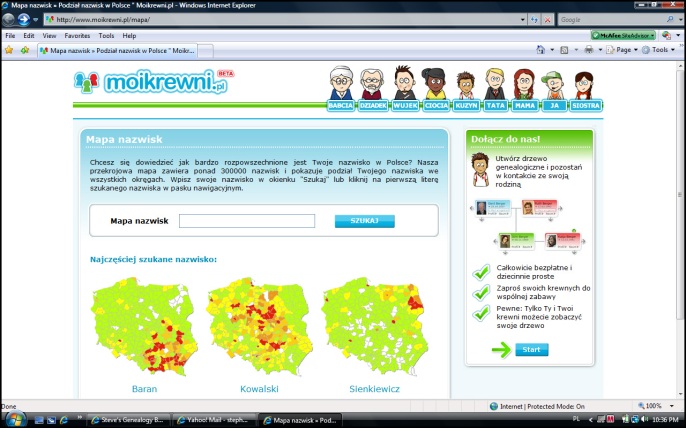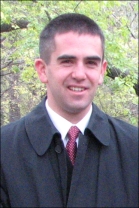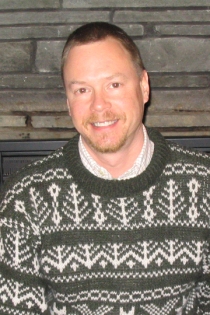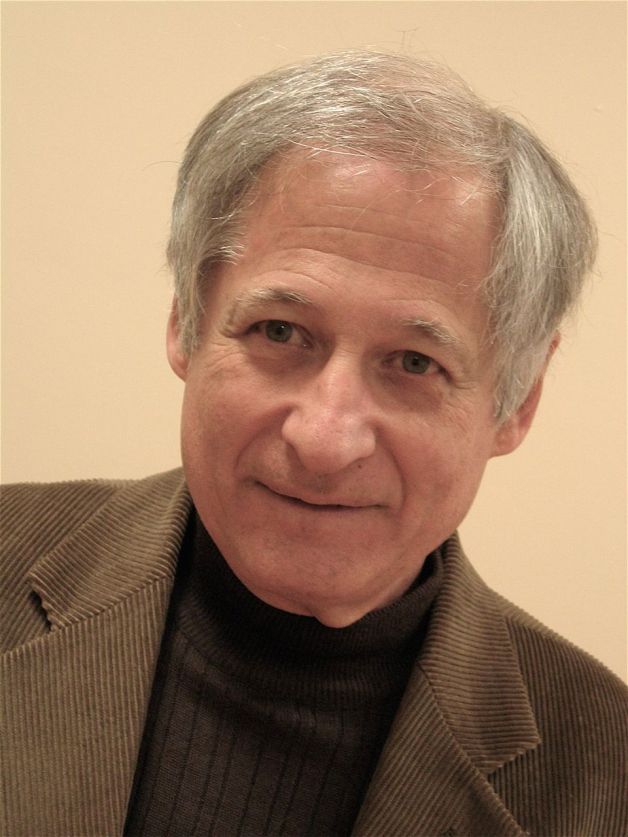Stephen J. Danko, PhD
Genealogy Blogs: New Ways to Disseminate Genealogy Information on the Internet
One of the newest ways to publish genealogical information on the Internet is by the use of weblogs, commonly called blogs. Genealogy blogs include a wide range of subjects, including genealogy news, methodology, family history, and research diaries. Setting up and maintaining a blog is surprisingly easy and can provide benefits for your research in ways that other methods of disseminating genealogical information may fall short.
Genealogy Gadgets and Gizmos: New Technology to Help in Your Research
New hardware, software, and on-line technology make finding, recording, and sharing information faster and easier than ever. Many of these advancements have found their way into genealogical research, enabling even a moderately technology-capable genealogist to take advantage of these new gadgets and gizmos. New technology enables genealogists to have access to their family history data from anywhere in the world, avail themselves of genealogy education at times and places of their choosing, collect documents and information more easily, and prepare professional-quality family books without the professional price.
Michael Hall
FHL Digitizing Family History Books Project
Individuals are invited to contribute to the Family History Archive in two ways: donate an electronic copy of their family history to be permanently preserved in this archived collection, or donate a printed copy of their family history with a contribution for digitizing and processing. A sample online history is showcased: Four American families: Our Polish and Hungarian Ancestors authored by Joseph F. Martin.
Kelvin Hulet
AncestryPress
AncestryPress is an online tool for building person- or family-inspired books using simple-yet-powerful text and photo editing tools. Building a book on AncestryPress is an exciting, creative process and a great way to document and share valuable information about your family and its history. This lecture helps you through the book building process and provides you with the basic knowledge to guarantee the best possible end result—a book you and your family can treasure for generations to come.
Ceil Wendt Jensen, MA, CG
Skype Teleconference
Conversation with noted author William F. “Fred” Hoffman. Fred will answer questions and queries posed by the UPGS 2008 attendees.
Skype Teleconference
Conversations with Kasia Grycza of Polish Roots and Lukasz Bielski creator of the Poznan Project. They will discuss researching in Poznan and answer queries posed by the UPGS attendees.
Strategies for Locating Ancestral Villages: Four Case Studies
The four case studies presented use different US finding aids and techniques to locate the Polish villages and parishes. While many traditional research techniques were employed in this research, this lecture also addresses online tools that can help you in your quest. The case studies are from West Prussia, East Prussia, Congress Poland, Poznań, and Galicia.
Survey of North American and Polish Military Records
A survey of military records and databases related to North American and Polish research. Resources held by the Family History Library (FHL) will be highlighted. The survey includes: Civil War, World War I, and World War II military records including how to access US military headstone records. The FHL holds microfilms of military parish registers of baptisms, marriages, and deaths for Austrian and Prussian regiments.
Post Mortem Records and a new Database
This session covers Polish and North American funerary customs and records. We will cover records from churches, undertakers, stonemasons, cemeteries and societies that sponsor burial grounds for their members. Learn about home wakes and view photos made at graveside. The lecture includes photos of funeral cards and announcements, record books, cemeteries, tombstones and exhumation. You may be surprised at the wealth of information available. Bring your family funeral “holy” cards to be digitized and entered into a new free database.
Baerbel Johnson
Online Mailing Lists
Rootsweb offers free mailing lists that feature surnames, geographic regions, and religion. Baerbel, a member of the German Passenger email list, speaks about the ins and outs of online mailing lists.
Kahlile B. Mehr, MA, MLS
Acquisitions at the FHL
This presentation covers the major policy shift in acquisitions of 2007 and the development of an image delivery infrasturcture in the genealogical operations of the Church of Jesus Christ of Latter-day Saints (Mormons). It also covers all other elements of acquisitions: collection management function, record locations, field negotiations, procedures, shipping, receipt, cataloging, and distribution through Record Search and Family History Centers.
Stephen P. Morse, PhD
One-Step Webpages: A Potpourri of Genealogical Search Tools
The One-Step website started out as an aid for finding passengers in the Ellis Island database. Shortly afterwards it was expanded to help with searching in the 1930 census. Over the years it has continued to evolve and today includes over 100 web-based tools divided into 13 separate categories ranging from genealogical searches to astronomical calculations to last-minute bidding on e-bay. This presentation will describe the range of tools available and give the highlights of each one.
Sonja Hoeke-Nishamoto, AG
The First Polish Community- Panna Maria, Texas, or Parisville, Michigan?
Sonja and Ceil share a presentation that documents the history of the two earliest North American Polish communities. Panna Maria makes the official claim as being the first community. Parisville lost early documentation due to fires. Primary documentation, land records, and manifests support their research. Vote for the first community at the end of the session.
Polish Research Trip
This lecture will discuss research sources visited, such as church and state archives, parishes, newly found relatives, civil registration offices, schools, and museums. Sonja will cover the types of resources available and answer questions a researcher might have as they plan a trip to Poland to find information about his ancestors.
Tomasz Nitsch
Tomasz Nitsch and the Pomeranian Genealogical Association
Skype Teleconference hosted by Tomasz Nitsch Conversation with the most genealogical family in Poland: Adam and Ewa Kaminski. Ewa is a PTG (Polish Genealogical Society) member of the board and Adam is a president of the Pomeranian Genealogical Association (Pomorskie Towarzystwo Genealogiczne- PTG too ;). Main topics: Polish TG – today and plans for the future. Pomeranian TG – local genealogical events and online databases for vital
records from the archives in Pelpin.
Tomasz Nitsch with Marek Jerzy Minakowski PhD
Conversation with Marek Jerzy Minakowski PhD, Polish historian and genealogist, who built the greatest Polish genealogical database. Dr. Minakowski’s database shows e.g., that most of Polish famous poets (Rey, Kochanowski, Morsztyn, Krasicki, Mickiewicz, Krasiński, Miłosz and Herbert) have family ties with each other. Dr Minakowski is also the Chairman of the Society of the Descendants of Sejm Wielki, organization similar to the Sons of American Revolution.
Genealogy in Poland Today
The presentation will cover two main topics: one is about genealogical societies, their activities and plans. Second is about Polish genealogical websites, especially the very successful ones like the classmates system naszaklasa.pl and the European project moikrewni.pl. Last but not least, Tomasz will tell you some words about his website genpol.com, useful functions, and plans for the future.
All About the Skype Community
We are in XXI century but most of us are using technologies that were created two centuries ago, like the telephone. Tomasz will explain how to use new technologies, especially Skype, not only for low cost overseas phone calls, but also as a finding aid to locate relatives or people living in locations of interest and research.
Orvill Paller
The Genealogical Society of Utah visits Poland
During the fall of 2007 Orvill Pallar traveled to Poland and visited archives on behalf of the Genealogical Society of Utah. He reports his findings.
Daniel Schlyter, AG
Building a Polish Pedigree Using Church Records and Civil Registration
This case study demonstrates the process of finding an ancestor in Polish records and progressing back generation by generation.
Using the Family History Library’s Map Collection
A discussion of the map collection at the family history library and how to effectively use it.
Beau Sharbrough
Polish Research on Footnote.com
Footnote is a history website. What can a Polish researcher find there? From Kosciuszko in the Rev War, to the Polar Bears in WWI, to naturalization records and FBI case files; this tour will show you how to go beyond the census to find information about your family and the life of Polish Americans.
Social Media- what is it all about?
How can you find out what other researchers are working on? How can you know whose work to trust? How can you tell people about your greatest discoveries? Social Media is a term that is widely used for a variety of things, but at its heart it means giving you a soapbox, a billboard, and a stack of post-it notes to put anywhere you think it will help. This talk, given by a representative of Footnote.com, the social media history site, will show you several social media sites that support collaborative discovery of your family’s past.
The United Polish Genealogical Societies Conference will be held Friday, April 18 through Monday, April 21, 2008 at the Best Western Salt Lake Plaza Hotel in Salt Lake City, Utah. The tentative schedule has been posted. The final schedule will be posted when available. Registration is now open online and by mail.
